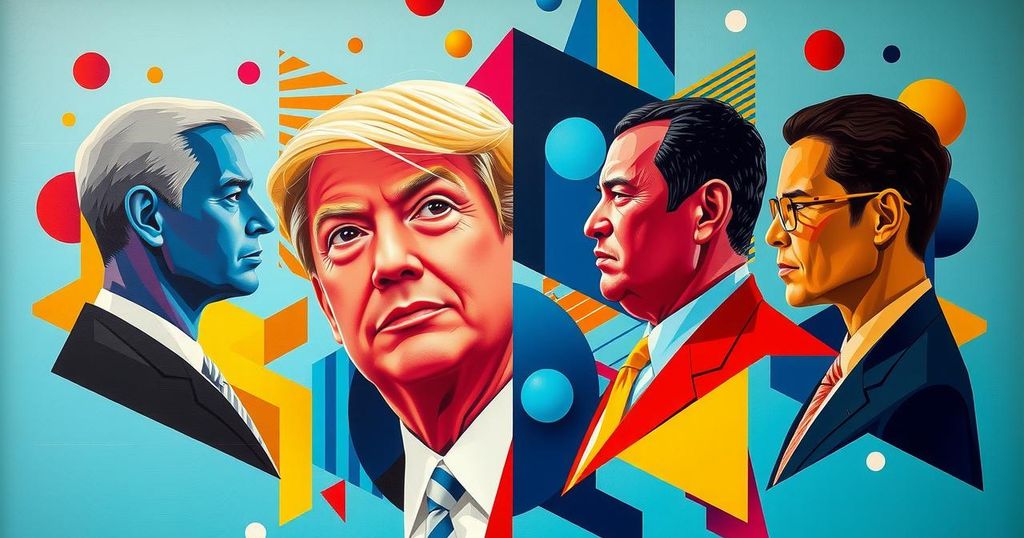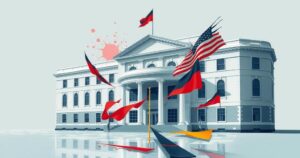How Politics Shapes Business Decisions in a Polarized Society
In a politically charged and divided landscape, the influence of politics permeates every aspect of American life, including business operations. With the impending presidential election, recent findings illuminate how political biases shape corporate decisions, affecting everything from investment strategies to workplace dynamics. Political polarization isn’t just a background hum; it defines who works together, how companies navigate risks, and what paths they take toward future growth. Understanding this dynamic is crucial for navigating a landscape where business interplay mirrors the political fray.
Understanding the Impact of Political Polarization
Political polarization in the United States has stirred the very foundations of society, deeply impacting not just personal lives, but also the world of business. Recent analyses have shed light on how these divides influence corporate America, showing that political beliefs are increasingly intertwined with decision-making. As industries prepare for the upcoming presidential election, understanding the implications of political leanings on executive choices and business operations is more critical than ever.
The Growing Concern of Executive Political Uniformity
The analysis, contributed to by the likes of Elisabeth Kempf, explores the troubling pattern of political homogeneity within executive teams across the nation. The research indicates that this trend has grown considerably over the past several years, leading to an environment where businesses are shaped by their leaders’ political affiliations. In finance, for example, where investors’ decisions hinge on their political views, the risk posed by political events or crises like climate change often reflects a narrow perspective, imposing limits on business strategies.
Partisan Segregation within Corporate Hierarchies
A revealing study used data from various sources—executive surveys, campaign contributions, and even voter registrations—to show that workplaces are markedly segregated by political affiliation. In fact, a substantial percentage of executives, 66% at major firms, identify as Republicans. This partisan composition varies regionally, with states like Florida boasting over 75% Republican executives compared to just 50% in more liberal locales such as Massachusetts. Such segregation has significant ramifications, as it affects not only who gets hired but also who collaborates on vital business transactions.
How Political Views Impact Financial Assessments
Moreover, it’s not just the workplaces that are affected; the influence of politics extends to the financial ratings given to firms. Analysts at major credit rating organisations have been shown to adjust ratings based on their political alignments. Those analysts who do not align with the sitting president’s party tend to downgrade ratings more frequently, with implications that could cost firms millions in lost market capitalisation. Such findings highlight the urgency of addressing these biases, which fundamentally alter the cost of capital and larger investment strategies across the board.
The Entrepreneurial Influence of Political Context
Interestingly, the political landscape also shapes the entrepreneurial spirit in the nation. Studies indicate that Republicans are statistically more inclined to start businesses than their Democratic counterparts. This trend appears to intensify under Republican administrations. Similarly, innovation, as measured by patent filings, spikes for Democratic inventors following elections won by their party but tends to wane for Republicans in the subsequent cycle. This indicates that the political climate could steer not just business decisions, but also the broader spectrum of innovation and industry progression.
Evaluating the Benefits and Risks of Political Homogeneity
Aligned political views among executives can indeed foster smoother mergers and acquisitions, suggesting some upside to political homogeneity. Yet, there’s a warning in these findings from Kempf that too much uniformity can lead to poor decision-making models, stifling alternative viewpoints and innovative thought processes. While some alignments can benefit corporate manoeuvres, it’s essential to tread carefully and acknowledge that diversity in political thought might bring about a stronger and more adaptive business environment in the long run.
What does political polarization mean?
Political polarization refers to the growing ideological distance between political parties, influencing both personal and professional relationships.
Are executive teams becoming politically homogeneous?
Yes, executive teams are increasingly showing political homogeneity, leading to possible biases in decision-making and business strategies.
Does political alignment affect financial analysts’ ratings?
Research indicates that politics can impact analysts’ ratings, often leading to harsher evaluations based on political alignment with the incumbent administration.
How does politics influence entrepreneurship?
Statistics show Republicans are more likely to start businesses, particularly during Republican presidencies. This is reflected in innovation patterns as well.
Is political homogeneity beneficial for business?
While some political alignment can ease business transactions, excessive homogeneity can hinder decision-making by limiting diverse perspectives.




